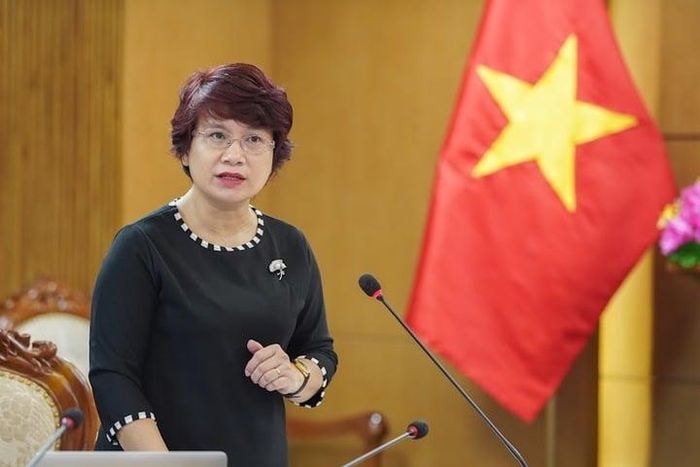The Ministry of Education and Training plans to tighten regulations on universities to consider early admissions to ensure fairness, not to force schools to use high school graduation exam scores for admissions.

On the afternoon of November 26, Associate Professor Dr. Nguyen Thu Thuy, Director of the Department of Higher Education, Ministry of Education and Training (MOET) said that the draft revised university admission regulations focus on two important points.
Firstly, to overcome the shortcomings when training institutions use many methods and subject combinations for admission to the same program, including the fact that some training institutions reserve too many quotas for early admission, or set too many bonus points for foreign language certificates.
Second, 2025 is the first year that students studying under the new general education program will be considered for university admission. Therefore, it is necessary to reform the admission regulations to meet the requirements of the innovations in the new general education program, creating a positive impact on teaching and learning at the high school level.
The remaining amendments and supplements are mainly technical in nature, facilitating the registration and admission process.
Regarding the issue of limiting schools to only 20% of their total enrollment quota, the Director of the Department of Higher Education emphasized that this rate is based on the actual enrollment situation in recent years.
The Ministry of Education and Training wants to bring early admission back to the right target, focusing on candidates with outstanding abilities and academic achievements, limiting the impact on students' studies in the final semester of grade 12 and high school graduation exam preparation.
"The most important thing is to create fairness among candidates when applying. Not all students are able to apply early before completing grade 12.",The department head said and affirmed that reducing the scale of early admission does not cause difficulties, but also creates more favorable conditions for the admission work of schools and candidates.
According to the department head, whether there is early admission or only general admission, the total number of candidates registering for the exam will not change, so why do schools have to work so hard to compete for early admission?
Why do students who have not completed grade 12 have to struggle to apply to many places and then feel uneasy about studying, while the Ministry of Education and Training has a common enrollment support system with a complete database and a completely online process that is convenient for both candidates and schools?
"It's time for us to look back at the early admission trend (which has only been popular for the past 5-6 years) objectively, to find fundamental solutions and completely resolve the problems arising from it," Associate Professor Thuy said.
In response to concerns about this regulation affecting the autonomy of universities, Associate Professor Thuy said that the Ministry of Education and Training issued the above regulations to implement a basic principle in education, which is fairness, thereby improving the quality of enrollment and training, and absolutely does not create any barriers or have the purpose of forcing schools to use high school graduation exam scores for admission.
Autonomy in general and autonomy in enrollment in particular of higher education institutions as prescribed by law must always be closely linked to social responsibility, first of all, it is necessary to comply with basic principles in education. The Law on Higher Education assigns the Ministry of Education and Training to issue enrollment regulations as a state management tool to regulate this matter.
TB (according to VTC)Last year, 214 out of 322 schools offered early admission. The main methods of early admission were based on academic records, aptitude test scores, international certificates (SAT, ACT, IELTS, etc.) or a combination of the above factors. The number of candidates admitted under this method was more than 375,500, of which 147,400 were first choice (nearly 40%).
Early admission is considered by experts to help candidates reduce admission pressure and increase their chances of choosing a school, while also helping mid- and bottom-ranked universities ensure the number of admitted candidates and reduce the rate of fake candidates.